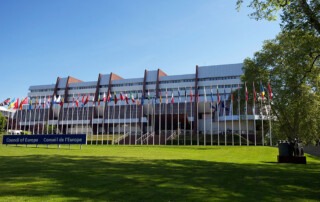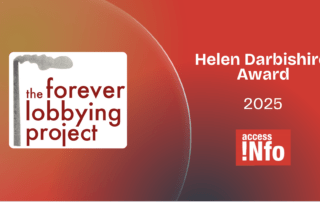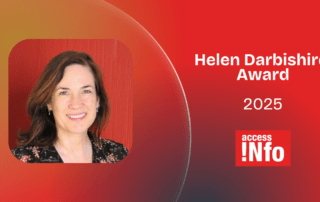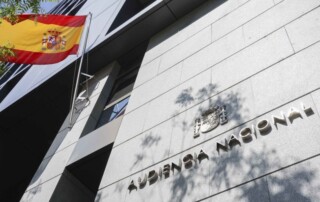EMPODERANDO AL PERIODISMO A TRAVÉS DEL DERECHO DE ACCESO A LA INFORMACIÓN
EL MANUAL ‘LEGAL LEAKS’ AYUDA A PERIODISTAS A OBTENER
INFORMACIÓN USANDO LAS LEYES DE ACCESO A LA INFORMACIÓN
Why is the right of access to information important for journalism?
A Guide for Journalists on How to Access Information
The Legal Leaks Toolkit, developed by Access Info Europe and n-ost, helps journalists access information using Access to Information laws. The Toolkit is available in a generic international version and can be adapted to the legal framework of any country. The existing national versions, translated into local languages, are available below. You can also read more below about our training programme and about how to contact
the Legal Leaks Help Desk.
Why do media experts think access to information is important?
Journalists, activists, and media experts speak about the importance of access to information in their daily work. Watch all interviews here!
That little detail in the relationship between journalists and sources, that little one, is so important that could change the way in which we tell stories.
It is extremely important that there is this mechanism that you can use as a journalist to say «Hang on a minute, you need to give us this, because we have a right to know».
It’s a great way to get stories, it’s a great way to fin out what governments in particular are doing, it’s a great way to find out where money goes, it’s a great way to prove accountability.
The right of access to information is very important for the journalists’ work; it’s important for everyday work, but it’s even more important for investigations.
Journalism is about investigation, it’s about asking questions; but it’s about documents as well, as a proof for questions, as a proof for answers
Basically, I need access to information to do my job as someone who is supposed to ensure the accountability of politicians, of public officials.
Cover photo: European Parliament via Flickr (CC BY-NC-ND 2.0)
ÚLTIMAS NOTICIAS SOBRE EMPODERANDO AL PERIODISMO
Access Info Ranks ATI Laws in 15 European Countries with Public Request Platforms
27 August 2025 - Access Info Europe has released a study comparing access to information (ATI) frameworks in 15 European countries, all of which operate public request platforms. The analysis measures how well national laws align with the Council of Europe’s Tromsø Convention and other international standards. About the study The research was carried out under the Access to
Winner Announced for the Helen Darbishire Award 2025
Madrid, 1st August 2025 – Access Info Europe is delighted to announce that the winner of the 2025 Helen Darbishire Award is The Forever Lobbying Project. This cross-border investigation exposed how the chemical industry lobbied against EU action on PFAS, so-called “forever chemicals”, linked to ongoing environmental and public health risks. Now in its second year, the Helen Darbishire Award
Finalists Announced for the Helen Darbishire Award 2025
Madrid, 25th July 2025 – Access Info Europe announces three finalists for this year's Helen Darbishire Award. Now in its second year, the award aims to honour individuals and organisations that have effectively used their right to information to advance human rights, environmental protection, democracy, or anti-corruption efforts. Following a competitive round of applications from across Europe, the Evaluation Committee
Legal Recommendations to Strengthen Access to Information in the Netherlands
Madrid, 7 July 2025 – Today Access Info Europe, in collaboration with SPOON, publishes a set of legal recommendations aimed at strengthening the Netherlands' Open Government Act (OGA) and aligning it with international transparency standards. The Netherlands has recently taken significant steps to strengthen its legal framework on access to information. On 1 May 2022, the Open Government Act (OGA)
Call for nominations for the Helen Darbishire Award
Madrid, 16 June 2025 – Access Info Europe today announces the launch of the Helen Darbishire Award which celebrates those who have used their right to information to have a positive impact on society. The Helen Darbishire Award (previously the Access Info Impact Award) recognises those who have significantly leveraged their right to information to advance human rights, environmental protection,
Spanish Court Orders Government to Disclose UNCAC Self-Assessment Documents
02 June 2025 - A Spanish court has ruled that the Ministry of Foreign Affairs, European Union and Cooperation was wrong to refuse Access Info’s request for documents related to Spain’s self-assessment of its implementation of the United Nations Convention against Corruption (UNCAC). Spain is currently participating in the second cycle of the UNCAC review process. As part of





